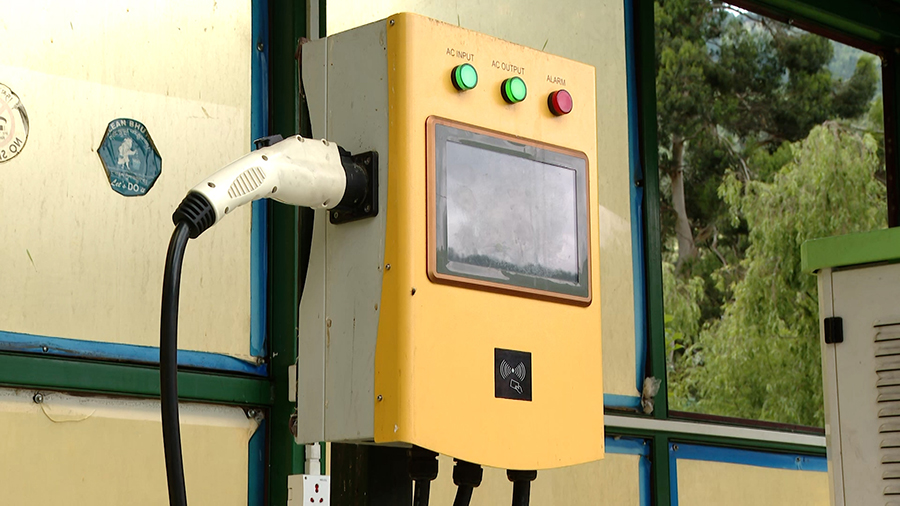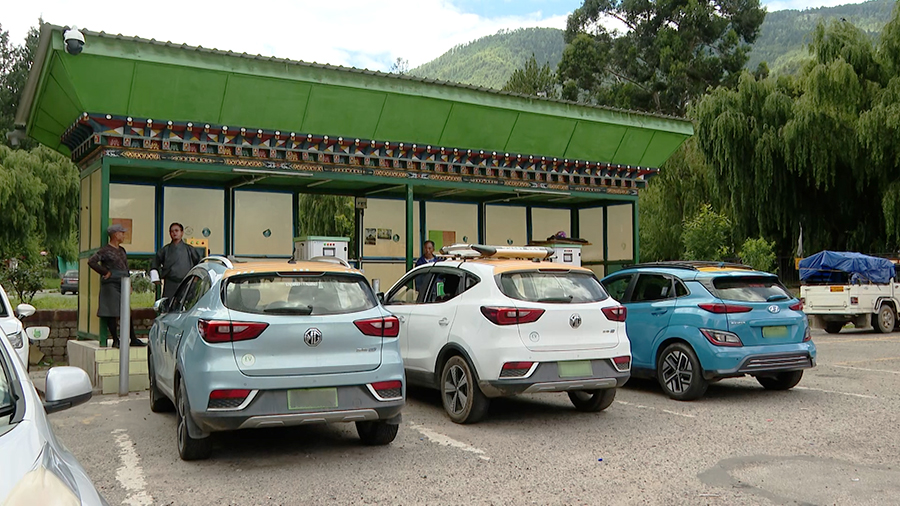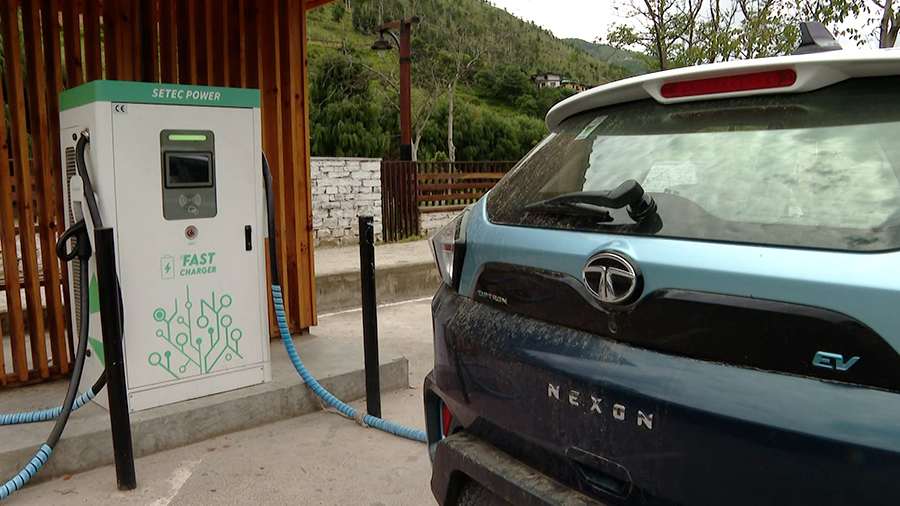 Electric vehicle owners in Bhutan may have to pay to charge their cars at public stations. The government plans to phase out the current free charging service by 2030. To promote smart electricity use and keep the power supply stable, especially in winter when Bhutan imports electricity, Bhutan Power Corporation (BPC) will introduce a Pay-Per-Use system with dynamic pricing.
Electric vehicle owners in Bhutan may have to pay to charge their cars at public stations. The government plans to phase out the current free charging service by 2030. To promote smart electricity use and keep the power supply stable, especially in winter when Bhutan imports electricity, Bhutan Power Corporation (BPC) will introduce a Pay-Per-Use system with dynamic pricing.
 Today, electric vehicles do not pay to charge their vehicles in public stations. There are some 700 electric vehicles in the country.
Today, electric vehicles do not pay to charge their vehicles in public stations. There are some 700 electric vehicles in the country.
The government pays around 4.3 ngultrum as an electric bill yearly to support the country’s push for cleaner transport and reduce fuel imports. The free service is going to stop in the next five years.
After that, EV owners will pay based on how much electricity they use.
BPC, which now manages and installs charging stations, will fully take over the public charging points.
 According to BPC, charging rates will follow a dynamic pricing system, higher during peak hours and lower during off-peak hours, which is between 10 PM to 6 AM.
According to BPC, charging rates will follow a dynamic pricing system, higher during peak hours and lower during off-peak hours, which is between 10 PM to 6 AM.
The company says the cost will remain affordable. It will also install security cameras at all charging stations and train staff to ensure smooth service.
The government is also encouraging private individuals to open charging stations using the same pricing system.
EV owners welcome the initiative.
Namgay, an EV taxi driver said, “We need charging points without problems and at regular intervals. For cars like mine, we need a station in Dochula or Lam Peri. When we go to Wangdue, we can’t return the same day. We have to stay back to charge, which takes two to three hours. Paying a little for electricity is not an issue.”
Sangay Wangdi, who also owns an EV taxi said, “This will help our country. Right now it’s free, but even if we pay, it won’t be costly. When we buy fuel, the money leaves the country. But we produce our electricity, so the money stays here.”
“Money doesn’t matter as long as there are enough charging stations. At the moment, there are too many cars and too few stations, so we wait for hours,” said Dorji Wangchuk, another EV taxi driver.
“It’s not like we are not going to pay tax. Even if small, we have to pay it to the government. But we would be thankful if the government could segregate a little between private and taxi EVs,” said Chencho Tshering, another EV taxi driver.
According to Bhutan’s Low Emission Development Strategy for Surface Transport 2021–2050, the government aims to make 70 per cent of taxi imports, 50 per cent of light vehicle and bus imports, and 70 per cent of the government fleet electric by 2030.
BPC, in collaboration with the Ministry of Infrastructure and Transport, will be expanding EV charging infrastructure nationwide. They aim to maintain at least one charger per 15 EVs, in line with international standards.
AC slow chargers will be set up in city parking areas, offices, and commercial centres, while DC fast chargers will be placed in high-demand locations
Along highways, DC fast chargers with backups will be set up every 50–100 kilometres. In rural areas, chargers will be installed based on demand and feasibility.
Samten Dolkar
Edited by Sangay Chezom






